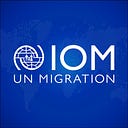The Youth Forum and the Road Beyond Marrakech
“Engage us; invest in us; and count us in.
In return, we are committed to implementing the Global Compact — to leveraging our networks to bring new innovative solutions to the table; to contributing to the global knowledge platform through the collection of evidence, practices and initiatives for youth migrants; to using our voices to combat and prevent xenophobia and discrimination in our schools and workplaces; and to ensuring that the least privileged, most marginalised young people are included in our organisations.”
— United Nations Major Group for Children and Youth (UNMGCY) brief on youth priorities in the context of the Intergovernmental Conference on the Global Compact for Migration (GCM).
On 8–9 December, over 150 youth from over 50 countries around the world gathered in Marrakech, Morocco for the Youth Forum. The Forum was held in the context of Migration Week where the Intergovernmental Conference to Adopt the Global Compact for Safe, Orderly and Regular Migration was held on 10–11 December. The Forum was organized by the United Nations Major Group for Children and Youth (UNMGCY) — a UN General Assembly-mandated, official, formal, and self-organized space for young people to meaningfully engage in the UN system — and hosted in official partnership with IOM and UNICEF.
Organized by young people, for young people: The Forum sought to ensure that young people, as critical partners and stakeholders, would have a meaningful role in the implementation, follow-up, and review (iFUR) process of the Global Compact. In fulfilling that objective, the Forum drew on discussions, positions, and actions of youth from all regions of the world and served as a platform to build capacity for policy implementation and a sense of public collective ownership of the Global Compact’s success.
The Forum was opened by Ms. Roxanne Tajbakhsh, the global focal point for the migration working group at UNMGCY who noted that “you, as youth, have the vision, the knowledge, the experience to help us pave the way towards a better, more colorful future.”
She was followed by the UN Secretary-General’s Special Representative for International Migration, Ms. Louise Arbour, who noted that “the Youth Forum has a unique role to play. It is the only forum that brings an exclusive focus of young people in international migration at the opening.”
Speaking to the young people in the room, IOM’s Deputy Director Ambassador Laura Thomson noted that:
“[young people] need to become agents of change now. You need to come out loudly to your political and social leaders [about] what kind of society you want.” She continued to say that “…to work together with you, we need to understand you — to harness the full potential of young people, and the Global Compact for Migration gives a great opportunity to do so”.
Kader, a young migrant and a youth ambassador for the U-Report — a messaging tool that empowers young people around the world to engage with and speak out on issues that matter to them — noted that “xenophobia and fear of poor migrants is a labor barrier, even if they are qualified” and emphasized the need to act on the recommendations of young people: “our demands as young people: Give us a seat at the table; invest in us; believe in us; and take us seriously.”
The first day of the Forum had workshops where young people strengthened their capacity and skills for the implementation of the GCM. Workshops were held on topics of gender and migration, climate change, labor and decent jobs, human trafficking, integration, advocacy through social media, and advocacy and exchanges through non-formal education.
The second day focused on regional technical brainstorming sessions and development of action plans, with a specific focus on regional priorities.
The participants of the forum identified the following four thematic priorities for the GCM:
● The creation of jobs for youth, and the guarantee of decent work;
● The promotion of quality education and transnational recognition of skills;
● Investment in the mitigation of drivers of forced migration, such as climate change and disaster risk reduction; and
● Combating the exploitation of youth, such as human trafficking and child detention, that can occur throughout each phase of migration.
One of the greatest tangible outcomes of the Youth Forum is that Ecuador, the next Chair of the Global Forum for Migration and Development (GFMD) expressed interest to have the Youth Forum as part of the GFMD programme. This year also marked the first time that a co-chair of the GFMD was youth.
The forum was closed by the UN Secretary-General’s Youth Envoy, Ms. Jayathma Wickramanayake, who congratulated the young people for putting together such a forum and noted that “empowering young people to participate in intergovernmental processes is extremely important.”
To learn more about the Youth Forum participants’ views and hopes for the Global Compact for Migration, please check out a video that they produced.
The article was prepared by Amira Nassim, Migration Policy Officer at IOM’s Office to the United Nations.
All photos credit goes to United Nations Major Group for Children and Youth (UNMGCY).
